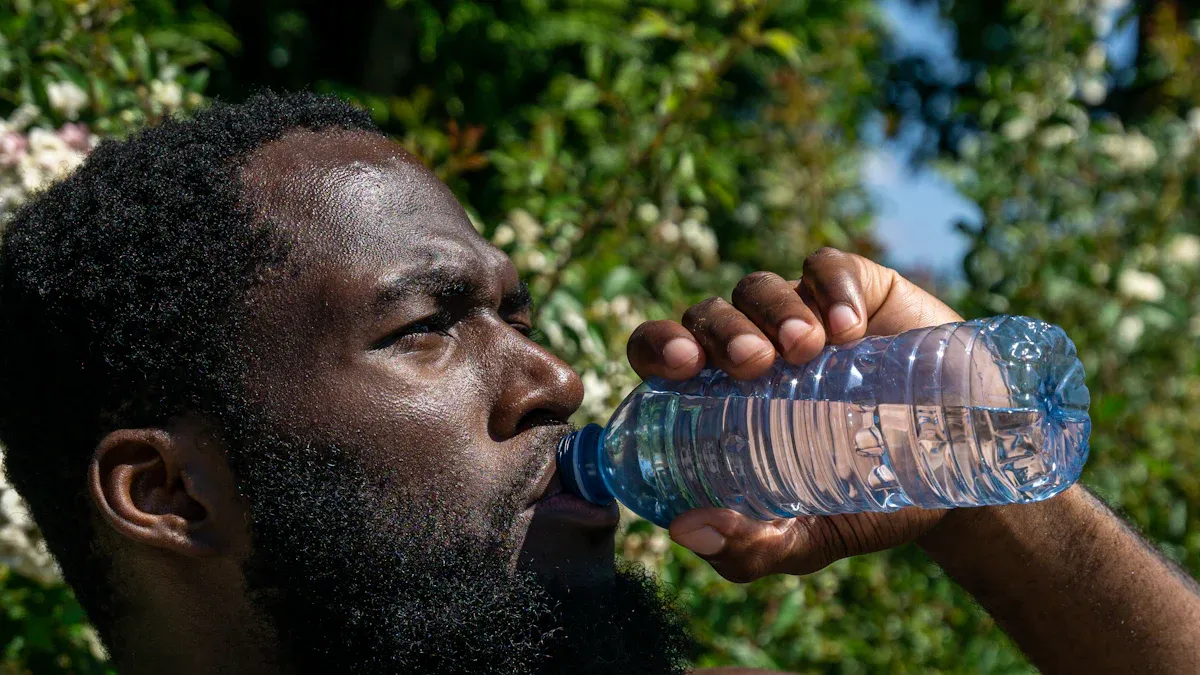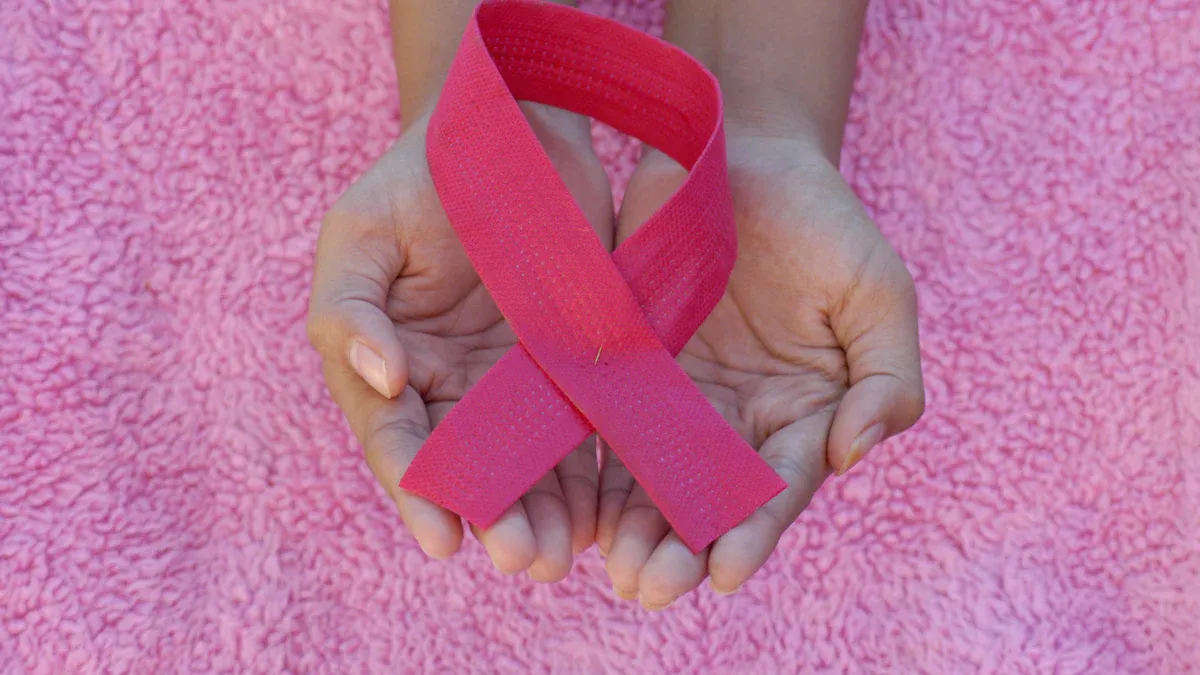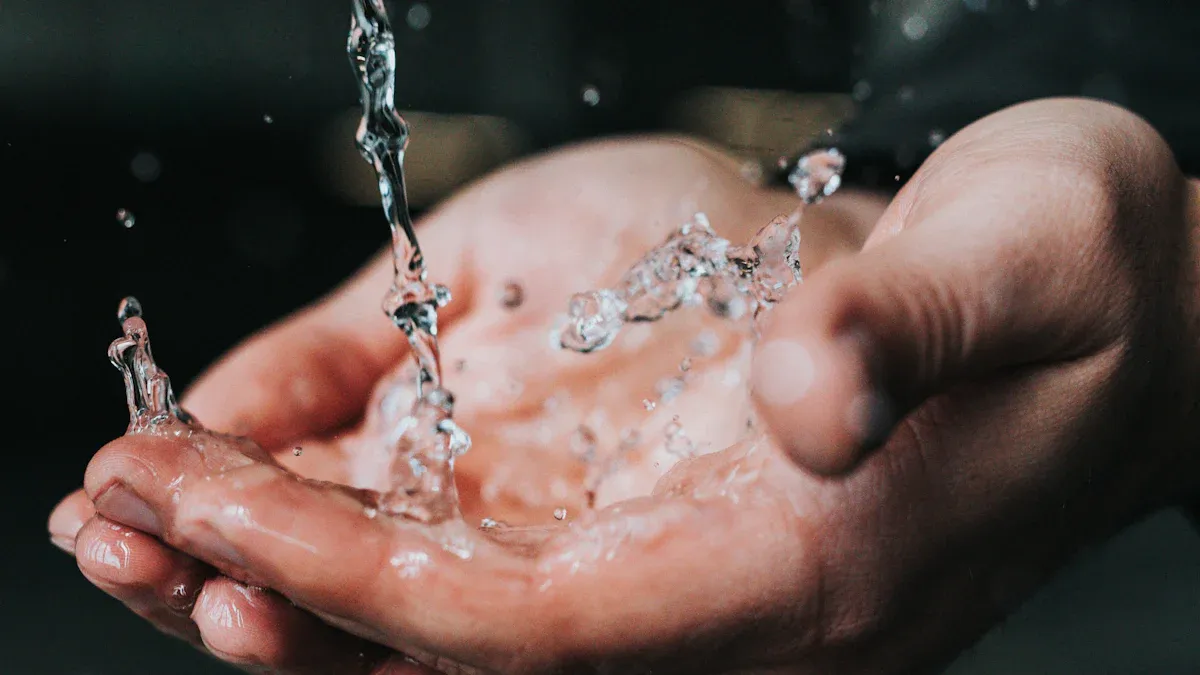How Hydration Supports Your Health and Reduces Cancer Risk

Your body relies on water for nearly every essential function. It makes up about 55-75% of your body, depending on your age, and helps transport nutrients, regulate temperature, and remove waste. Yet, up to 75% of Americans don’t drink enough water daily. Staying hydrated can lower inflammation, improve kidney function, and even reduce risks of certain cancers like bladder and colorectal cancer. Proper hydration also supports weight management, which helps combat obesity—a major cancer risk factor. The importance of hydration for overall health and cancer prevention cannot be overstated.
Key Takeaways
Drinking enough water helps your body work well, like moving nutrients and keeping your body cool. It also keeps you feeling good and full of energy.
Staying hydrated can lower swelling in the body and cut down the chances of getting some types of cancer. It's an easy way to stay healthy.
Having water before eating can help you eat less and manage your weight. This is important to avoid cancers linked to being overweight.
Eat foods with lots of water, like fruits and veggies, to stay hydrated and feel better overall.
Set reminders and carry a refillable water bottle to build good hydration habits. These habits help you stay healthy and full of energy.
The Importance of Hydration for Overall Health and Cancer Prevention

How Hydration Supports Bodily Functions
Nutrient transport and absorption
Water plays a vital role in delivering nutrients and oxygen throughout your body. It acts as a universal solvent, helping dissolve essential vitamins and minerals so your cells can absorb them efficiently. Without enough water, your body struggles to transport these nutrients, which can lead to fatigue and weakened immunity. Staying hydrated ensures your body gets the fuel it needs to function optimally.
Temperature regulation and cooling
Your body relies on water to maintain a stable temperature. When you sweat, water evaporates from your skin, cooling you down and preventing overheating. This process is especially important during physical activity or in hot climates. Without proper hydration, your body may struggle to regulate its temperature, increasing the risk of heat-related illnesses.
Waste elimination and detoxification
Hydration supports your kidneys and liver in flushing out toxins and waste products. Drinking enough water helps your urinary system remove bacteria and reduces the risk of kidney stones. Regular hydration also promotes healthy bowel movements, minimizing the contact time between irritants and your colon. This process is essential for maintaining overall health and reducing the risk of colorectal issues.
Long-Term Health Benefits of Staying Hydrated
Preventing chronic diseases like kidney issues
Proper hydration reduces the risk of chronic conditions such as kidney stones and urinary tract infections. Studies show that drinking between 2,000 mL and 3,100 mL of water daily significantly lowers the likelihood of developing kidney stones compared to lower intake levels. Maintaining optimal hydration also helps regulate serum sodium levels, which are linked to reduced risks of heart failure and diabetes.
Supporting physical activity and weight management
Staying hydrated enhances your physical performance by keeping your muscles and joints lubricated. It also helps control your appetite, as thirst is often mistaken for hunger. By drinking water before meals, you can reduce calorie intake, supporting weight management and lowering obesity-related cancer risks.
Signs and Risks of Dehydration
Physical symptoms like fatigue and dry skin
Dehydration can cause noticeable physical symptoms, including dry skin, lips, and mouth. You may also experience fatigue, headaches, or muscle cramps due to electrolyte imbalances. Dark-colored urine or reduced urine output often signals that your body needs more water.
Cognitive effects like confusion and poor focus
Your brain depends on water for hormone production and neurotransmitter function. Dehydration can impair cognitive abilities, leading to confusion, irritability, and difficulty concentrating. Staying hydrated helps you maintain mental clarity and focus throughout the day.
Tip: Pay attention to early signs of dehydration, such as thirst or dry mouth, to prevent more severe symptoms.
The Role of Hydration in Cancer Prevention
Reducing Cancer Risk Factors
Lowering inflammation and oxidative stress
Hydration plays a key role in reducing inflammation and oxidative stress, both of which are linked to cancer development. Research involving over 11,000 adults over 30 years revealed that higher serum sodium levels, a sign of poor hydration, increased the risk of chronic diseases and biological aging. Adults with serum sodium levels above 142 mEq/L had a 10-15% higher likelihood of being biologically older than their actual age. Staying hydrated helps your body combat inflammation and oxidative stress, reducing the risk of chronic conditions that may lead to cancer.
Maintaining a healthy weight through hydration
Drinking water can support weight management, which is crucial for lowering cancer risk. Hydration helps control appetite since thirst is often mistaken for hunger. By drinking water before meals, you can reduce calorie intake and maintain a healthy weight. Obesity is a significant risk factor for many cancers, so staying hydrated is a simple yet effective way to support your overall health.
Did you know? Coffee and tea, when consumed in moderation, provide hydration and antioxidative properties that may further reduce cancer risk.
Research Insights on Hydration and Cancer
Studies on colorectal and bladder cancer
Scientific studies have explored the connection between hydration and cancer prevention. For example:
Study | Findings |
|---|---|
Tang R, Wang JY, Lo SK, Hsieh LL (1999) | Found that higher water intake and physical activity reduced the risk of colorectal cancer in Taiwan. |
Keren Y, Magnezi R, Carmon M, Amitai Y (2020) | Investigated the link between drinking water habits and breast cancer occurrence in women. |
These findings highlight the importance of hydration in reducing cancer risks, particularly for colorectal and bladder cancers.
The role of hydration in toxin removal
Your body relies on water to flush out harmful toxins. Proper hydration supports kidney and liver function, ensuring that waste products are efficiently removed. This process reduces the buildup of carcinogens in your body, lowering the risk of cancer. Drinking enough water also promotes regular bowel movements, which minimizes the contact time between toxins and your colon.
Hydration During Cancer Treatment
Supporting the body during chemotherapy
Cancer treatments like chemotherapy can dehydrate your body, making hydration even more critical. Drinking water helps your body process medications and reduces side effects like nausea and fatigue. Staying hydrated also supports your immune system, which is essential during treatment.
Promoting bowel regularity and waste elimination
Chemotherapy often disrupts your digestive system, leading to constipation or irregular bowel movements. Drinking water can help restore regularity by softening stools and promoting healthy digestion. This not only improves comfort but also aids in the elimination of toxins, supporting your recovery process.
Tip: Keep a reusable water bottle nearby during treatment to remind yourself to stay hydrated.
Practical Tips for Maintaining Optimal Hydration

Daily Water Intake Guidelines
General recommendations for adults
Staying hydrated starts with knowing how much water your body needs. The U.S. National Academies of Sciences recommend a daily fluid intake of about 2.7 liters (91 ounces) for women and 3.7 liters (125 ounces) for men. This includes all beverages and food sources. A general rule of thumb is to drink 0.5 to 1 ounce of water per pound of body weight daily.
Group | Recommended Adequate Intake (liters) | |
|---|---|---|
Men aged 20–39 | 3.61 | 3.7 |
Women aged 20–39 | 2.78 | 2.7 |
Adjusting for activity level, age, and climate
Your hydration needs may vary based on factors like physical activity, age, and climate. Hot weather or intense exercise increases water loss, so you should drink more during these times. Sipping water throughout the day, rather than consuming large amounts at once, helps your body retain fluids effectively.
Hydrating Foods and Beverages
Fruits and vegetables with high water content
Incorporating water-rich foods into your diet can boost hydration. Fruits like watermelon, cucumbers, strawberries, and citrus fruits are excellent choices. Vegetables such as tomatoes and bell peppers also contribute significantly to your daily water intake.
Tip: About 20% of your total water intake comes from food, so adding these hydrating options to your meals can make a big difference.
Alternatives like herbal teas and infused water
If plain water feels monotonous, try herbal teas or infused water. Unsweetened coconut water is another great option, offering electrolytes for added hydration. These alternatives keep you hydrated while adding variety to your routine.
Building Sustainable Hydration Habits
Using apps and reminders
Technology can help you stay on track. Apps with hydration trackers and reminders provide personalized recommendations and real-time data. Some reusable water bottles even feature LED lights or audible alerts to remind you to drink water regularly.
Carrying a reusable water bottle
A reusable water bottle makes it easier to sip water throughout the day. Look for bottles with smart features like temperature control or UV sterilization to enhance your hydration experience.
Making water more enjoyable with natural flavors
Adding natural flavors like lemon, mint, or cucumber can make water more appealing. This simple trick encourages you to drink more and stay hydrated effortlessly.
Did you know? Staying hydrated not only supports your health but also helps you build long-term habits for overall well-being.
Debunking Myths About Hydration
Do You Really Need 8 Glasses a Day?
Understanding individual hydration needs
The idea that everyone needs to drink eight glasses of water daily is a common misconception. Your hydration needs depend on factors like age, activity level, and climate. For example, during hot weather or intense exercise, your body loses more fluids, requiring you to drink more water. Pregnant or breastfeeding individuals also need higher fluid intake to support their bodies.
Dr. Heinz Valtin, a hydration expert, debunked the eight-glass rule in a 2002 study. He found no scientific evidence supporting this claim. Instead, he highlighted that much of your daily water intake comes from food and metabolic processes. The U.S. National Academies of Sciences recommends 92-124 ounces of daily fluid intake for adults, which includes water from all sources. This shows that hydration is not a one-size-fits-all concept.
Tip: Listen to your body. Thirst and urine color are good indicators of your hydration status.
Can You Drink Too Much Water?
Risks of overhydration and hyponatremia
While staying hydrated is essential, drinking excessive amounts of water can be dangerous. Overhydration can lead to hyponatremia, a condition where your blood sodium levels drop too low. This imbalance can cause symptoms like muscle cramps, vomiting, and even seizures.
In one tragic case, a soldier consumed nearly 13 liters of water during a military exercise, leading to fatal hyponatremia. Your kidneys can process only about 0.8 to 1.0 liters of water per hour. Drinking beyond this rate can overwhelm your body, causing water retention and brain swelling.
Note: Balance is key. Drink water steadily throughout the day without overloading your system.
Does Coffee and Tea Dehydrate You?
The truth about caffeine and hydration
You might have heard that coffee and tea dehydrate you, but this is a myth. Moderate consumption of caffeinated beverages hydrates your body just as effectively as water. While caffeine can increase urine output slightly, regular drinkers develop a tolerance, minimizing this effect.
Experts agree that all beverages, including coffee and tea, contribute to your daily fluid intake. So, your morning cup of coffee or afternoon tea can help keep you hydrated.
Did you know? Caffeine’s diuretic effect is mild and does not lead to significant fluid loss.
Is Thirst a Reliable Indicator?
Why thirst may not always signal dehydration
You might think thirst is your body’s way of telling you it needs water. While this is partly true, thirst doesn’t always provide an accurate measure of your hydration status. Your body’s thirst mechanism is complex and influenced by many factors, including age, activity level, and even the environment.
Thirst begins when your brain detects changes in your body’s fluid balance. It signals you to drink water to restore equilibrium. However, this system doesn’t always activate immediately. By the time you feel thirsty, your body may already be mildly dehydrated. This delay can make thirst an unreliable indicator, especially during physical activity or in hot weather.
Note: Older adults often experience a reduced sense of thirst, which increases their risk of dehydration.
Studies on thirst mechanisms reveal how this process works and why it varies across different populations:
Thirst is triggered by changes in blood osmolality (the concentration of particles in your blood).
Factors like age, stress, and illness can suppress or delay thirst signals.
Techniques to assess thirst include monitoring fluid intake and measuring hydration markers like urine color.
Your thirst response also depends on your habits. If you regularly drink water throughout the day, your body may not rely as heavily on thirst signals. On the other hand, if you often ignore thirst, your body might stop signaling as strongly.
To stay hydrated, don’t wait until you feel thirsty. Instead, pay attention to other signs like dark urine or dry skin. Drinking water consistently throughout the day helps you maintain proper hydration and avoid the risks of dehydration.
Tip: Keep a water bottle nearby to remind yourself to drink, even when you’re not thirsty.
Staying hydrated is one of the simplest ways to improve your health and lower your cancer risk. Research highlights the connection between proper hydration and reduced risks of chronic diseases and certain cancers. For example:
Study | Findings | Water Intake Level | Cancer Risk Association |
|---|---|---|---|
Wu et al. | Lower all-cause mortality risks | Associated with lower cancer risks | |
20,297 adults study | 54% decreased risk of fatal coronary disease | 5+ glasses/day | Linked to lower cancer risk |
Various studies | Negative association with cancers | N/A | Suggests hydration reduces cancer risk |
By drinking enough water, you help your body transport nutrients, eliminate waste, and reduce inflammation. These processes are essential for maintaining overall health and preventing diseases. Building daily hydration habits, like carrying a water bottle or eating water-rich foods, empowers you to take control of your well-being. Small changes today can lead to a healthier future.
FAQ
How can you tell if you're dehydrated?
Look for signs like dark urine, dry skin, or fatigue. You might also feel dizzy or have a headache. Thirst is another indicator, but it often appears after dehydration begins.
Tip: Check your urine color. Pale yellow means you're hydrated, while darker shades suggest you need more water.
Does drinking water help with weight loss?
Yes, water can help control your appetite. Drinking a glass before meals reduces calorie intake by making you feel full. Staying hydrated also boosts metabolism, helping your body burn calories more efficiently.
Can you hydrate with beverages other than water?
Absolutely! Herbal teas, milk, and even coffee contribute to hydration. Fruits and vegetables with high water content, like cucumbers and watermelon, also help.
Note: Avoid sugary drinks. They may hydrate you but add unnecessary calories.
How much water should you drink during exercise?
Drink 7-10 ounces every 10-20 minutes during exercise. Afterward, replenish fluids based on how much you sweat.
Did you know? Weighing yourself before and after exercise helps estimate fluid loss. For every pound lost, drink 16-24 ounces of water.
Is it possible to drink too much water?
Yes, overhydration can lead to hyponatremia, where sodium levels drop dangerously low. This condition causes nausea, confusion, and in severe cases, seizures.
Reminder: Balance is key. Drink water steadily throughout the day without overloading your system.
See Also
Recognizing Symptoms And Causes Of Esophageal Cancer
An In-Depth Overview Of Various Cancer Types
Identifying Symptoms Associated With Hypopharyngeal Cancer
Exploring Symptoms And Causes Related To Bladder Cancer
Understanding Carcinoid Tumors: Essential Information You Need

